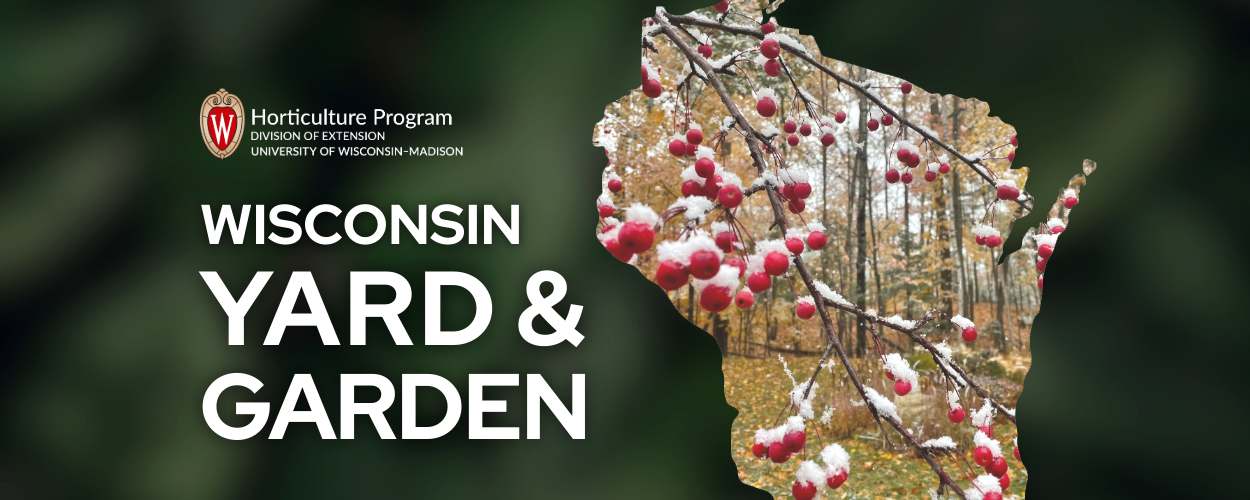
November brings us the transition from fall to winter. Depending on the year and where you are in Wisconsin, snow may cover the ground by the end of the month. There are important yard and garden agenda items to complete prior to winter setting in.
Perennial flowers and strawberries are key plantings for applying winter mulches sometime this month. Remember the purpose is to prevent temperature fluctuations and soil heaving during winter. Timing can be tricky, as plants should be dormant and ideally the ground is starting to freeze but is not covered by snow yet. Typically straw, evergreen boughs, or similar materials are best applied in late November. Watch the weather and monitor plants closely and act appropriately.
Lawns should be mowed until they are completely dormant. Warm weather for much of October combined with adequate rainfall has kept lawns green and growing over much of the state, so be sure to mow as needed so lawns do not go into winter excessively tall. There is no need to make the final mowing excessively short. Clean up thick layers or piles of leaves on lawns first, but do not worry about getting every leaf. Chopping up some leaves while mowing and allowing them to stay on lawns is beneficial.
With colder nights, rabbits often start feeding on shrubs even before a blanket of snow arrives. Damage from mice tends to be more of a problem under the snow. The most dependable way to protect shrubs and younger trees from gnawing damage is to use hardware cloth for mice and chickenwire for rabbits. With either material, make a loose-fitting cylinder and place around the trunks. Larger multi-stemmed shrubs or shrub plantings can be enclosed with a chickenwire fence, supported by a few stakes.
Pesticides and fertilizers should be stored properly for winter. Most pesticides should be kept from freezing, and away from sunlight, open flame, and excessive heat. All this information is on product labels. Keep pesticides and fertilizers in bags or cardboard cartons away from moisture. Make sure all open packages and containers are well sealed. Pesticides and other chemicals should be stored away from children and pets.
Finally, do not forget about proper overwintering of all gardening equipment and tools. Consult and follow the owner’s manual instructions for specific winter storage of mowers, rototillers, and other power equipment. Unhook, drain, and put away hoses. Clean and take inventory of all tools, noting which need repair or replacement. While you are at it, get out the snowblower, shovels, and related snow removal equipment and make sure all is ready to go for the months just ahead.

About the Author
Bruce Spangenberg is a Horticulture Outreach Specialist with UW-Madison Division of Extension. Get answers to your lawn, landscape and garden questions anytime at “Ask Your Gardening Question.”

